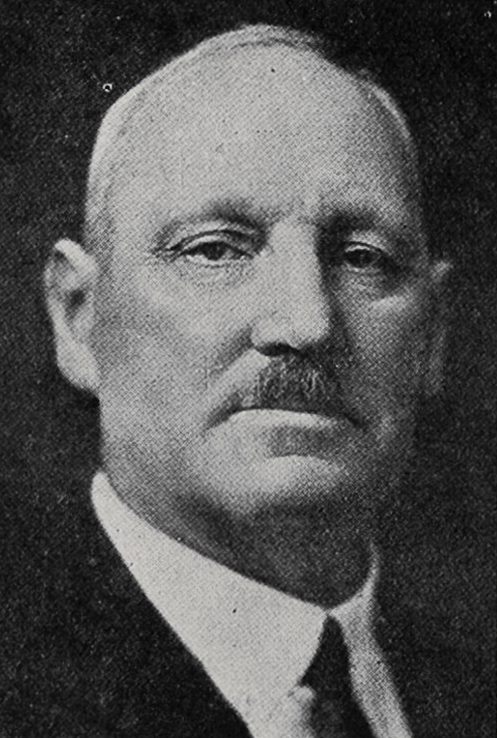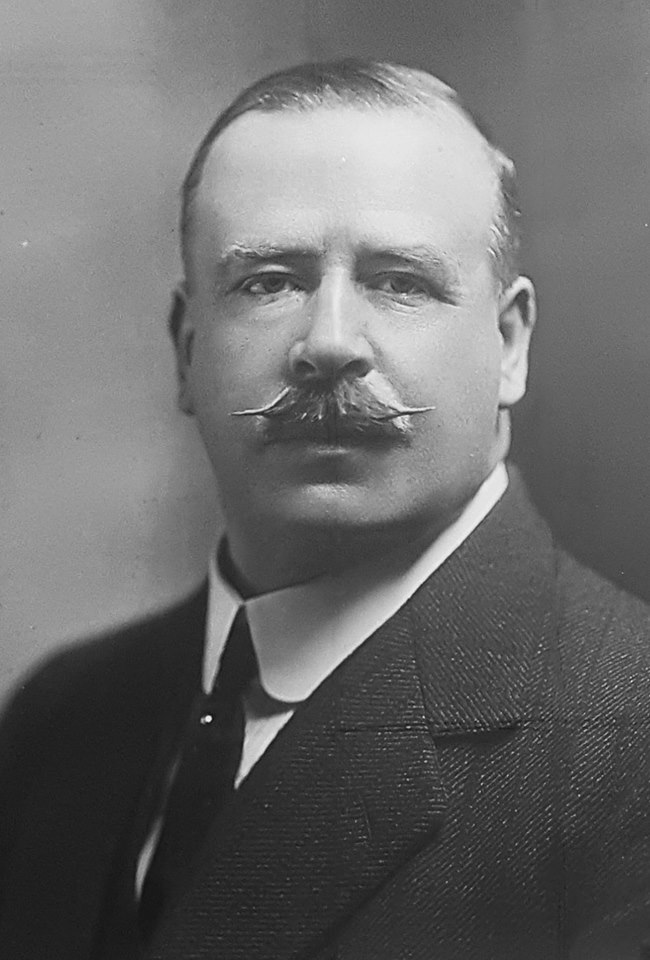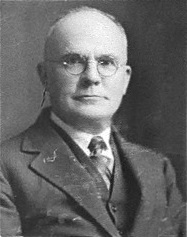|
Oswald Hawken
Oswald James Hawken (1870–1957) was a Reform Party Member of Parliament in New Zealand, and was a cabinet minister 1926–1928 in the Reform Government. He was elected to the Egmont electorate in the 1919 general election, but was defeated in 1928. In 1935, he was awarded the King George V Silver Jubilee Medal The King George V Silver Jubilee Medal is a commemorative medal, instituted to celebrate the 25th anniversary of the accession of King George V. Issue This medal was awarded as a personal souvenir by King George V to commemorate his Silver J .... References 1870 births 1957 deaths Reform Party (New Zealand) MPs Members of the Cabinet of New Zealand Members of the New Zealand House of Representatives New Zealand MPs for North Island electorates Unsuccessful candidates in the 1928 New Zealand general election {{NewZealand-politician-stub ... [...More Info...] [...Related Items...] OR: [Wikipedia] [Google] [Baidu] |
Oswald Hawken
Oswald James Hawken (1870–1957) was a Reform Party Member of Parliament in New Zealand, and was a cabinet minister 1926–1928 in the Reform Government. He was elected to the Egmont electorate in the 1919 general election, but was defeated in 1928. In 1935, he was awarded the King George V Silver Jubilee Medal The King George V Silver Jubilee Medal is a commemorative medal, instituted to celebrate the 25th anniversary of the accession of King George V. Issue This medal was awarded as a personal souvenir by King George V to commemorate his Silver J .... References 1870 births 1957 deaths Reform Party (New Zealand) MPs Members of the Cabinet of New Zealand Members of the New Zealand House of Representatives New Zealand MPs for North Island electorates Unsuccessful candidates in the 1928 New Zealand general election {{NewZealand-politician-stub ... [...More Info...] [...Related Items...] OR: [Wikipedia] [Google] [Baidu] |
Reform Party (New Zealand)
The Reform Party, formally the New Zealand Political Reform League, was New Zealand's second major political party, having been founded as a conservative response to the original Liberal Party. It was in government between 1912 and 1928, and later formed a coalition with the United Party (a remnant of the Liberals), and then merged with United to form the modern National Party. Foundation The Liberal Party, founded by John Ballance and fortified by Richard Seddon, was highly dominant in New Zealand politics at the beginning of the 20th century. The conservative opposition, consisting only of independents, was disorganised and demoralised. It had no cohesive plan to counter the Liberal Party's dominance, and could not always agree on a single leader — it was described by one historian as resembling a disparate band of guerrillas, and presented no credible threat to continued Liberal Party rule. Gradually, however, the Liberals began to falter — the first blow came with ... [...More Info...] [...Related Items...] OR: [Wikipedia] [Google] [Baidu] |
Reform Government Of New Zealand
The Reform Government of New Zealand was the government of New Zealand from 1912 to 1928. It is perhaps best remembered for its anti-trade union stance in the Waihi miners' strike of 1912 and a dockworkers' strike the following year. It also governed during World War I, during which a temporary coalition was formed with the Liberal Party. Significant policies Industrial * Sided with employers in the 1912 Waihi miners' strike and the waterfront workers' strike of 1913. In the latter strike, civilians enrolled as ' special constables' became known as 'Massey's Cossacks'. * The Board of Trade Act (1919) gave government the power to regulate industries "in the interests of economic welfare".Poverty and Progress in New Zealand: A Re-assessment by William Ball Sutch Public service * The Public Service Act (1912) put a commissioner at the head of the public service and replaced political patronage over appointments and inconsistency between departments with ‘scientific management’ ... [...More Info...] [...Related Items...] OR: [Wikipedia] [Google] [Baidu] |
Egmont (New Zealand Electorate)
Egmont is a former New Zealand electorate, in south Taranaki. It existed from 1871 to 1978. Geographic coverage Egmont is the old name of the mountain that is the Taranaki landmark of Mount Taranaki. A village north of the mountain is also called Egmont. History This rural electorate was formed in 1871. Mount Egmont, after which it is named, was confiscated from Māori by the New Zealand Government under the powers of thNew Zealand Settlements Act 1863 following the Second Taranaki War. William Gisborne was the first elected representative in 1871, elected unopposed. He was a minister in the third Fox Ministry and resigned from Parliament when the government fell on 10 September 1872. Harry Atkinson won the resulting 1872 by-election. He held the electorate until 1891, when he resigned. During this time, he was Premier on four occasions. Atkinson's resignation caused the 1891 by-election, which was won by Felix McGuire. He held the electorate until 1896, when he (successf ... [...More Info...] [...Related Items...] OR: [Wikipedia] [Google] [Baidu] |
1919 New Zealand General Election
The 1919 New Zealand general election was held on Tuesday, 16 December in the Māori electorates and on Wednesday, 17 December in the general electorates to elect a total of 80 MPs to the 20th session of the New Zealand Parliament. A total number of 560,673 (80.5%) voters turned out to vote. In 1919 women won the right to be elected to the House of Representatives. The law was changed late that year, and with only three weeks' notice, three women stood for Parliament. They were Ellen Melville in Grey Lynn, Rosetta Baume in Parnell, and Aileen Cooke in Thames. Ellen Melville stood for the Reform Party and came second. She stood for Parliament several more times and generally polled well but never won a seat. Results Though Labour Party captured only eight seats it received nearly a quarter of the votes – a shock to conservative minds due to Labour being founded only three years earlier in 1916. Party totals Votes summary Electorate results The table below shows ... [...More Info...] [...Related Items...] OR: [Wikipedia] [Google] [Baidu] |
1928 New Zealand General Election
The 1928 New Zealand general election was held on 13 and 14 November in the Māori and European electorates, respectively, to elect 80 MPs to the 23rd session of the New Zealand Parliament. 1928 was the year postal voting was introduced for certain specified groups (e.g. invalids) who could not get to a polling booth on election day. The election The 1928 election was held on Tuesday, 13 November in the Māori electorates, and on Wednesday, 14 November in the general electorates to elect a total of 80 MPs to the 23rd session of Parliament. A total of 844,633 electors were registered on the European roll, of which 743,691 (88.05%) turned out to vote. All 80 electorates were contested. 47 and 29 electorates were in the North Island and South Island, respectively, plus the 4 Māori electorates. In 1927, a faction of the decaying Liberal Party formed a new organisation, which was eventually named the United Party. In 1928, to the considerable surprise of most observers and many m ... [...More Info...] [...Related Items...] OR: [Wikipedia] [Google] [Baidu] |
King George V Silver Jubilee Medal
The King George V Silver Jubilee Medal is a commemorative medal, instituted to celebrate the 25th anniversary of the accession of King George V. Issue This medal was awarded as a personal souvenir by King George V to commemorate his Silver Jubilee. It was awarded to the Royal Family and selected officers of state, officials and servants of the Royal Household, ministers, government officials, mayors, public servants, local government officials, members of the navy, army, air force and police in Britain, her colonies and Dominions. For Coronation and Jubilee medals, the practice up until 1977 was that United Kingdom authorities decided on a total number to be produced, then allocated a proportion to each of the Commonwealth countries and Crown dependencies and possessions. The award of the medals was then at the discretion of the local government authority, who were free to decide who would be awarded a medal and why. A total of 85,234 medals were awarded, including *6,500 ... [...More Info...] [...Related Items...] OR: [Wikipedia] [Google] [Baidu] |
The Evening Post (New Zealand)
''The Evening Post'' (8 February 1865 – 6 July 2002) was an afternoon metropolitan daily newspaper based in Wellington, New Zealand. It was founded in 1865 by Dublin-born printer, newspaper manager and leader-writer Henry Blundell, who brought his large family to New Zealand in 1863. With his partner from what proved to be a false-start at Havelock, David Curle, who left the partnership that July, Henry and his three sons printed with a hand-operated press and distributed Wellington's first daily newspaper, ''The Evening Post'', on 8 February 1865. Operating from 1894 as Blundell Bros Limited, his sons and their descendants continued the very successful business which dominated its circulation area. While ''The Evening Post'' was remarkable in not suffering the rapid circulation decline of evening newspapers elsewhere it was decided in 1972 to merge ownership with that of the never-as-successful politically conservative morning paper, '' The Dominion'', which belonged to ... [...More Info...] [...Related Items...] OR: [Wikipedia] [Google] [Baidu] |
Charles Wilkinson (New Zealand Politician)
Charles Anderson Wilkinson (19 July 1868 – 3 November 1956) was a Reform Party (New Zealand), then Independent Member of Parliament for Egmont, in the North Island. He also served as mayor of Eltham from 1941 to 1947. Member of Parliament Wilkinson represented the Egmont electorate in the New Zealand House of Representatives from a 1912 by-election to 1919 (when he retired) and then again between 1928 and 1943. Wilkinson was a Reform MP between 1912–1919 and an Independent from 1928 to 1943 In 1935 and 1938 he was not opposed by National, and he habitually voted with National. He was briefly involved with the National Party, but after he lost its first leadership vote by one vote against Adam Hamilton, he continued to represent the Egmont electorate as an Independent. In 1935, he was awarded the King George V Silver Jubilee Medal. In the 1951 New Year Honours, Wilkinson was appointed a Commander of the Order of the British Empire The Most Excellent Order ... [...More Info...] [...Related Items...] OR: [Wikipedia] [Google] [Baidu] |
1870 Births
Year 187 ( CLXXXVII) was a common year starting on Sunday (link will display the full calendar) of the Julian calendar. At the time, it was known as the Year of the Consulship of Quintius and Aelianus (or, less frequently, year 940 '' Ab urbe condita''). The denomination 187 for this year has been used since the early medieval period, when the Anno Domini calendar era became the prevalent method in Europe for naming years. Events By place Roman Empire * Septimius Severus marries Julia Domna (age 17), a Syrian princess, at Lugdunum (modern-day Lyon). She is the youngest daughter of high-priest Julius Bassianus – a descendant of the Royal House of Emesa. Her elder sister is Julia Maesa. * Clodius Albinus defeats the Chatti, a highly organized German tribe that controlled the area that includes the Black Forest. By topic Religion * Olympianus succeeds Pertinax as bishop of Byzantium (until 198). Births * Cao Pi, Chinese emperor of the Cao Wei state (d. 226) * ... [...More Info...] [...Related Items...] OR: [Wikipedia] [Google] [Baidu] |
1957 Deaths
1957 (Roman numerals, MCMLVII) was a Common year starting on Wednesday, common year starting on Tuesday of the Gregorian calendar, the 1957th year of the Common Era (CE) and ''Anno Domini'' (AD) designations, the 957th year of the 2nd millennium, the 57th year of the 20th century, and the 8th year of the 1950s decade. Events January * January 1 – The Saarland joins West Germany. * January 3 – Hamilton Watch Company introduces the first electric watch. * January 5 – South African player Russell Endean becomes the first batsman to be Dismissal (cricket), dismissed for having ''handled the ball'', in Test cricket. * January 9 – British Prime Minister Anthony Eden resigns. * January 10 – Harold Macmillan becomes Prime Minister of the United Kingdom. * January 11 – The African Convention is founded in Dakar. * January 14 – Kripalu Maharaj is named fifth Jagadguru (world teacher), after giving seven days of speeches before 500 Hindu scholars. * January 15 – The film ' ... [...More Info...] [...Related Items...] OR: [Wikipedia] [Google] [Baidu] |
Reform Party (New Zealand) MPs
The Reform Party can refer to a number of current and disbanded political parties of various ideologies. North America Canada *Reform Party of Canada, a major political party in Canada from 1987 until 2000 when it became the Canadian Alliance ** Reform Party of Alberta (1989–2004) ** Reform Party of Alberta (2016–present) **Reform Party of Ontario **Reform Party of British Columbia **Manitoba Reform Party (defunct) *Reform movement (pre-Confederation Canada), Canadian political movement agitating for responsible government United States *Toleration Party (American Toleration and Reform Party), founded in Connecticut in the 1810s *Reform Party (19th-century Wisconsin), a short-lived coalition of the 1870s *Reform Party of the Hawaiian Kingdom *Reform Party of New York State *Reform Party of the United States of America, founded in 1995 by Ross Perot **Reform Party of Minnesota, supporters of the above, now the Independence Party ** American Reform Party, factional offshoot from ... [...More Info...] [...Related Items...] OR: [Wikipedia] [Google] [Baidu] |





